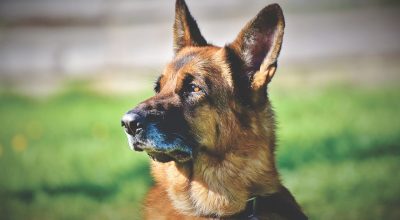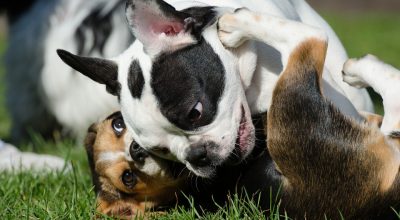Unlike humans, a dog’s ability to sweat is mitigated by their thick coat. Although they can sweat a little via their paw pads, they cool down through panting. In this process, they can exchange hot air in their lungs with the cooler external air. It helps speed up water evaporation from areas such as the tongue, inner mouth, and upper airway. As the water evaporates, it balances their body temperature, cooling them down efficiently. Why is my dog panting in the middle of the night? There are several causes of why your dog pants. It is crucial to observe the overall situation and interpret your dog’s body language.
Why Is My Dog Panting in the Middle of the Night? – Top X Reasons
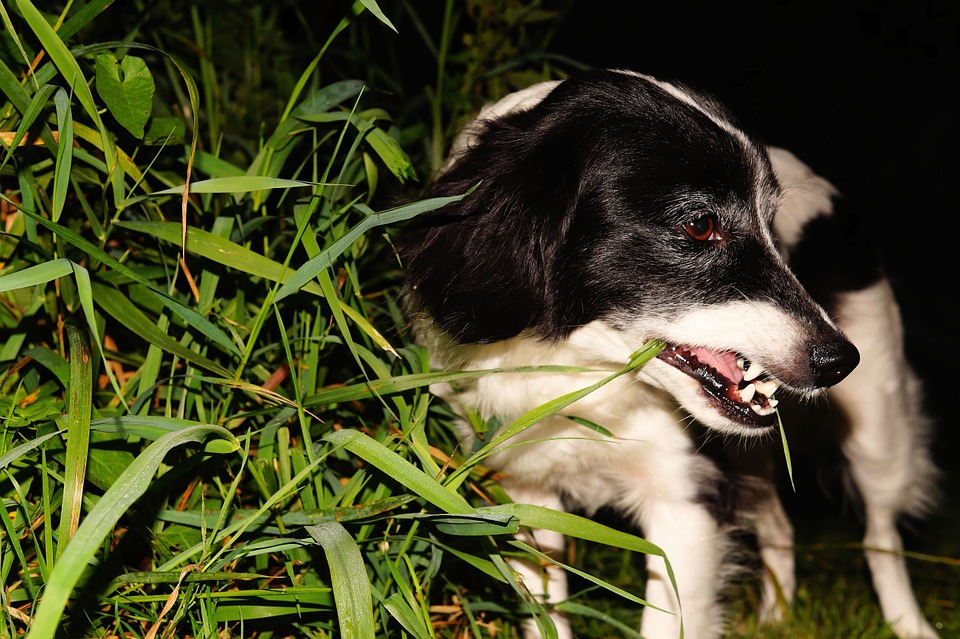
Dogs panting through the night will have different reasons from a dog panting during the daytime. If your dog pants during the night, something may be disturbing their sleep. Your dog will be panting and pacing as if something serious is wrong with them. It can be a real worry for dog owners since sleepless nights are a sign that there is something off.
The following are some explanations for your dog panting and pacing at night.
Brachycephalic breeds
If your dog falls under the brachycephalic breed, they will have a flat face and a short and squeezed in muzzle. Think of breeds such as French bulldogs, Pugs, and Boxers. If your dog is one of these, your dog’s panting can be traced to brachycephalic obstructive airway syndrome. Because of their unique anatomy, these breeds suffer from constant breathing difficulties since they have a narrow upper respiratory tract. Besides, they don’t pant as effectively as other breeds since they are flat-faced. It is easier for them to suffer heatstroke and overheat. They cannot cool themselves down efficiently.
Heatstroke
Dogs can suffer heatstroke during the hot summer months. It is especially true if they are left in warm cars exposed under the sun. If your dog suffers a heatstroke, they will be panting heavily and have difficulty breathing. If you observe this, you should get them out of the sun at once to a cooler area. They might also exhibit other symptoms such as excessive thirst, fast heart rate, and high body temperature.
The most effortless way to mitigate heatstroke is by not leaving your dog in hot areas. Never leave your dog unattended in a hot car and always make sure that your dog can access water for hydration.
Respiratory problems
Panting in dogs can also be traced to respiratory issues such as pneumonia. Pneumonia is an inflammation in the lungs. An infection causes it. Symptoms include fever, breathing difficulty, low energy, and coughing.
Cushing’s disease
This type of disease is a result of glands releasing high levels of cortisol. Symptoms will include excessive thirst, obesity, thinning hair, and skin.
Pain
Dogs are extremely good at hiding their pain. You will only discover they are in pain when it has progressed into something serious in many cases. If your dog’s panting can be traced to pain, they will frequently pace, especially during the night when they should be sleeping.
Obesity
If your dog is obese, they might struggle to get fresh oxygen rich blood into their system. If your dog is overweight, you must consult a vet at once since this condition can lead to severe issues such as heart disease, arthritis, which in the end, can reduce their lifespan.
Heart disease
Heart diseases can also result in excessive panting in dogs. Dogs with heart diseases may constantly pant even when they are not exercising. They seem to be always struggling to catch their breath. They will also be coughing and exhibit an overall weakness and lethargy.
Stress
If your dog is panting excessively at nighttime, it can be traced to behavioral issues such as anxiety and stress. An extremely stressed pet will have trouble sleeping. Their anxiety may manifest as disruptive behavior. An excellent treatment to soothe and calm dogs is CBD. Apply this treatment in oil form or as treats. CBD can calm your dog in many situations.
New Environment or Life Changes
Similar to humans, a considerable change in the environment or lifestyle is upsetting for any dog. For a majority of people, a new environment or going through a life-changing event is their choice. When it comes to dogs, massive shifts are forced on them. These changes can come without warning, and they hardly understand the situation. A restless dog, especially at night, maybe adjusting to the significant changes in their lifestyle and environment.
Unhappy home life
A dog will be stressed out due to an unhappy environment. Similar to people, dogs can become stressed when people constantly shout and yell. This unhappy situation can have a significant impact on your dog’s stress levels.
New Owner
When you adopt an adult dog, you give them a second chance to have a happy life, but it can cause them stress. Life changes with a new owner might be beneficial, but it will still be stressful. Your dog needs to cope with a new owner, adapt to living in new conditions, and a radically different lifestyle.
Allergies
Although stress is one reason dogs excessively pant at night, there may be other causes. One top reason is allergies.
Food and environmental allergies
A dog will have an adverse reaction to things they’re allergic to. One symptom of allergy is excessive panting. If your dog is panting at night and anxiety isn’t the issue, they may have come in contact with something that caused an allergic reaction. In this case, salmon oil is an excellent treatment to add to your dog’s diet. It helps mitigate the symptoms of their allergies.
Anxiety
A top reason dogs are excessively panting at night is anxiety. If you suspect your dog is restless because they are anxious, it will help if you can identify the causes of the anxiety to mitigate it.
Separation Anxiety
Separation anxiety in dogs results in panting and pacing at nighttime. Dogs suffer separation anxiety at night, especially if they have to sleep on their own. They will be panting through the night.
Senior dogs
Anxiety is typical in older dogs. Panting is a symptom of anxiety that becomes more prevalent as dogs enter their senior years. There is a shift in a dog’s physical and mental health as they age. In combination with changes in sleep cycles, this can result in an anxious dog.
Crowds
Some dogs are extremely social, but others are not. But even the most well-socialized pet can become stressed in situations where there are crowds of people. Parties can make them overstimulated and restless at night.
Situations that are low stress for you might not be the same for your anxious dog.
In many cases, your dog will not share the same things that trigger your anxiety. Some situations may be harmless for you, but it can cause your dog high levels of stress. Meeting visitors and new people, changes in the environment, weird noises can cause your dog anxiety.
Treating Heavy Panting in Dogs
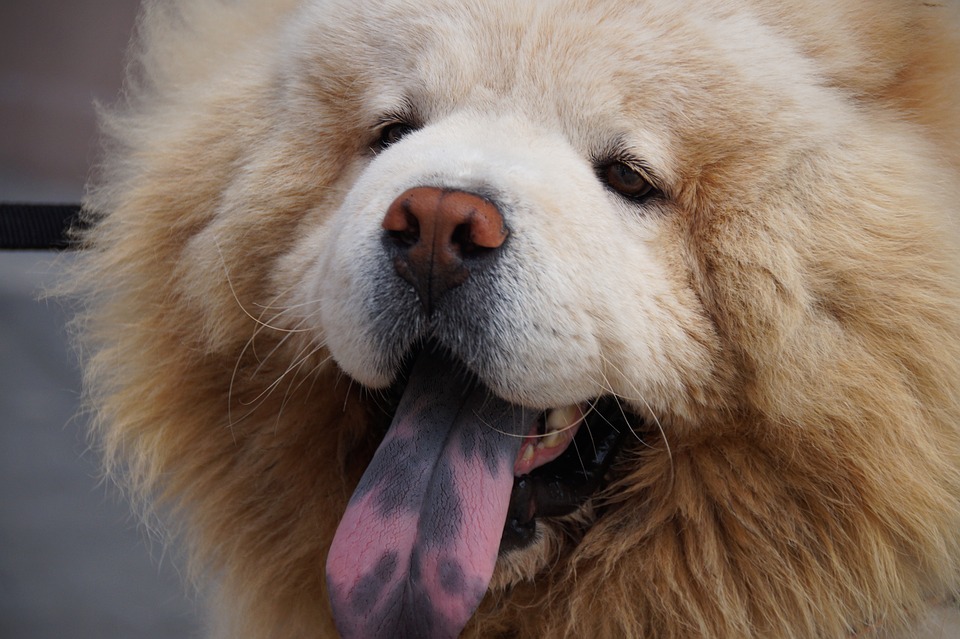
It is crucial to check for severe dehydration in your dog. If your dog is in a warm environment and panting excessively, it may be overheated. Check their gums if it is red or pale. If you observe these signs, take your dog to a cool area, fan them, and give them access to cool water.
If your dog doesn’t cease panting or becomes weak, take them to vet care emergency.
Step one
Check your dog’s overall health. They might be panting excessively to eliminate toxic substances in their body, especially if they suffer chronic health problems such as heart or lung disease. If your dog is overweight, he is likelier to pant excessively because of heat exhaustion. Extra layers of fat require energy to carry weight, making your dog work harder.
If you have a senior dog who suddenly pants excessively when doing average physical activities, schedule an appointment with the vet to have him examined.
Step two
Make sure to treat your dog for heat exhaustion or fever. Your dog might pant excessively if his body temperature rises in hot weather. It may also increase internally due to fever or infections. In these cases, your dog will be panting excessively to eliminate body heat. If your dog has a temperature of over 102.5°, immediately call for vet emergency care. Your vet will recommend steps you need to take when bringing your dog for medical intervention.
Make sure to take your dog’s temperature utilizing a rectal thermometer or ear thermometer. Never use an oral thermometer since it won’t produce accurate results.
Step three
It is crucial to know when to get medical care. Bring your dog to the vet if you notice excessive panting combined with the following symptoms:
- Arthritis due to pain
- Pain from abdominal issues such as bloat or pancreatitis
- Injury
- High fever over 102.5°
- Excessive panting beyond 10 minutes
- Bluish purple to light pale color on the mouth or tongue
Get them to emergency vet care if your dog is suffering bloat pancreatitis, difficulty breathing, and discoloration in their mouth or tongue.
Treating Your Dog’s Excessive Panting With Nutrition
Many owners will complain about a dog excessively panting and being restless at night. It could be a warning sign that your dog’s body is off-kilter. It is especially true if they are not in a warm or hot area.
Feeding your dog in the early hours of the day can be helpful. It helps mitigate the nighttime metabolic activity. Your dog will be producing less heat and pant less. It is also recommended you only feed them once a day. Your dog will undergo a mini fast, which is more natural for dogs.
It is also helpful if you feed your dog either a raw or homemade diet. With this kind of nutrition, they get the entire spectrum of essential supplements. If you are not sure how to prepare a balanced diet, make sure to check recommendations and recipes from your vet or a pet nutritionist.
Protein sources
Another thing to consider when it comes to feeding a natural diet is excessively panting dogs is never to serve them protein sources from large animals such as beef, buffalo, and bison. These meats can result in heat production. Foods with high levels of fat are also not recommended for your dog. It would be best if you also were cautious when feeding them liver.
If, despite all your efforts, your dog continues to excessively pant, it is recommended to get their blood examined if you haven’t done so.
If these examinations factor out medical issues, you may want to add cooling compounds in your dog’s diet, such as chlorophyll complex. You might also want to check your dog for the presence of mercury, arsenic, and lead. They may have to undergo testing analysis of their hair. It is one of the most reliable and cheapest ways of ensuring that there is nothing wrong with your dog’s body.
In a majority of cases, your dog’s body is an efficient and hard-working machine that cannot be optimally run merely with kibble and inadequate nutrition. Excessive panting is an early warning sign of nutrition deficits. You might want to have your dog undergo detoxification to balance and nourish their body. These interventions help mitigate your dog’s panting and keep him happy and healthy for years to come.
Final Thoughts – Why Is My Dog Panting in the Middle of the Night?
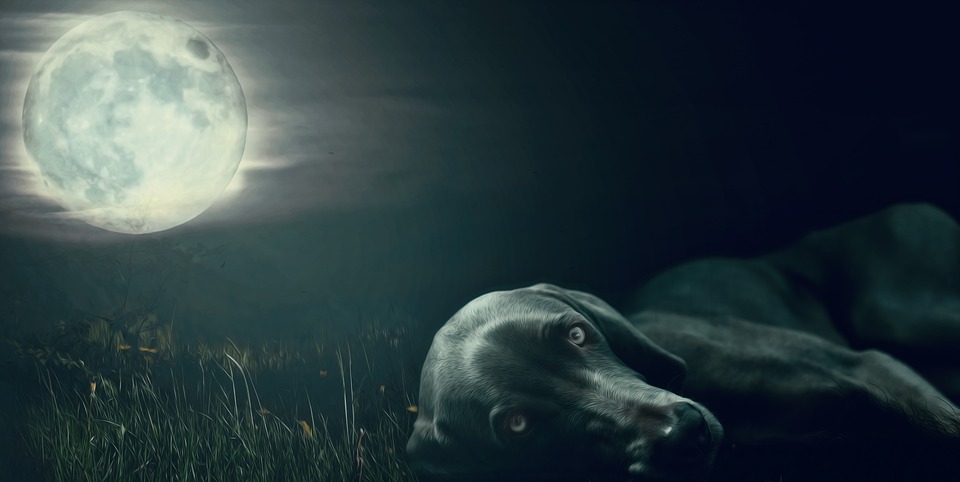
Dogs typically pant after exercise and play. However, there are some cases your dog might be excessively panting, especially at nighttime. Why is my dog panting in the middle of the night? There might be underlying medical issues in your dog. Check for allergies and pain. In some cases, the panting is caused by behavioral problems such as separation anxiety. Make sure to consult with your vet to pinpoint the specific trigger and create a treatment plan.

